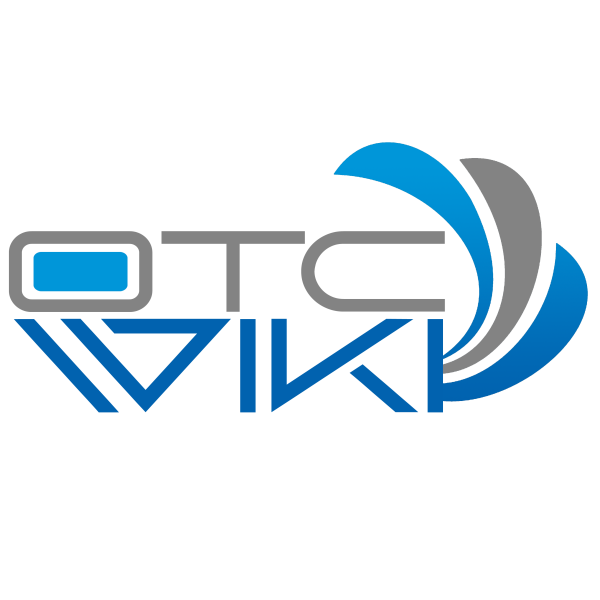Vivos Inc - RDGL stock
OTC Symbol: RDGL | OTC Tier: OTCQB
Description
Vivos Inc. is a medical device company specializing in radiation oncology. Their primary focus is on developing a brachytherapy device called RadioGel, which utilizes yttrium-90 (Y-90) for treating non-resectable tumors in humans. RadioGel is a hydrogel liquid containing minuscule Yttrium-90 phosphate microparticles that can be directly administered into a tumor for human cancer therapy.[1]
In addition to their human cancer treatment efforts, Vivos Inc. has a division called IsoPet, which aims to extend the application of RadioGel's yttrium-90 precision radionuclide therapy to veterinary oncology. This division is dedicated to treating cancerous tumors in dogs, cats, and horses. To demonstrate the safety and effectiveness of this therapy for different animal cancers, IsoPet collaborates with university veterinary hospitals.[1]
Furthermore, the company is involved in the development of a micro-injection system designed for small tumor therapy, specifically targeting cancerous thyroid lymph nodes.[1]
Origin
The origin of Vivos Inc. can be traced back to Robert Vicino's vision of creating a network of secure underground bunkers that would offer protection and safety during various global threats, such as nuclear war, pandemics, natural disasters, and social unrest. Vicino recognized the need for a reliable and well-equipped shelter system that could ensure the survival of individuals and communities in the face of uncertain and dangerous situations. Vicino's idea was to create a series of hardened underground shelters distributed across different locations around the world. These shelters would be capable of withstanding a wide range of threats and would provide essential resources, such as food, water, power, and medical facilities, to sustain residents for extended periods.[2]
Vivos Inc. began its operations by identifying suitable locations for its underground shelter communities and retrofitting existing underground structures to meet their rigorous safety and security standards. They also designed and constructed new shelters from the ground up. The company's underground shelters are designed to accommodate a community of people, making it possible for residents to work together and support each other during challenging times. These facilities are stocked with essential supplies and feature advanced security systems to protect against external threats. Vivos Inc. offered memberships and lease agreements to individuals and families, allowing them to secure a spot in one of their shelter communities. Members could access the shelters when needed, ensuring they had a place of safety in the event of a disaster or emergency.[2]
Products
RadioGel™ and IsoPet® Precision Radionuclide Therapy
Vivos, Inc. has developed a brachytherapy injectable device based on Yttrium-90, designed for treating tumors in both animals (IsoPet®) and humans (RadioGel™). Brachytherapy employs localized radiation to target cancerous tumors by placing a radioactive isotope directly inside the treatment area using the company's specialized hydrogel formulation. This unique injection method allows for the delivery of therapeutic radiation directly within the tumor without affecting the surrounding healthy tissues, reducing the side effects commonly associated with external-beam radiation therapy. This capability enables the safe delivery of higher radiation doses required for treating non-resectable and radiation-resistant cancers.[3] An application has been submitted to the FDA to initiate human clinical trials.[4]
IsoPet
IsoPet®, used for treating animals, utilizes the same technology as RadioGel™ for human treatment. To avoid confusion and cross-use, the US Food and Drug Administration recommended using different product names. IsoPet® consists of a hydrogel liquid containing small yttrium-90 phosphate particles that can be administered directly into a tumor. At room temperature, this hydrogel serves as a carrier for yttrium-90 and solidifies within the tumor interstitial space after injection, ensuring the radiation source stays securely in place. The short-range beta radiation emitted by yttrium-90 localizes the radiation dose within the treatment area, preserving normal organs and tissues from adverse effects. IsoPet® also has a short half-life, with over 90% of its therapeutic radiation delivered within 10 days. This is more favorable compared to other treatment options that might take up to six weeks or more to complete a full course of radiation therapy. As a result, IsoPet® can be administered safely on an outpatient basis, allowing the patient to return home without concerns about radiation exposure to their family.[3]
The IsoPet® Solutions division utilized university veterinary hospitals to demonstrate the safety and therapeutic effectiveness for various animal cancers. In 2018, testing on feline sarcoma at Washington State University and testing on canine soft tissue sarcomas at the University of Missouri were successfully completed. The FDA Center for Veterinary Medicine classified IsoPet® as a medical device based on its intended use and method of achieving its purpose. The product labeling included initial indications for use in canine and feline sarcomas. As veterinary devices do not require pre-market approval from the FDA, the company could generate revenue by selling IsoPet® to university animal hospitals and private veterinary clinics without further approval.[3]
RadioGel
Vivos, Inc. is also in the process of engaging with the FDA for clearance to market RadioGel™ specifically for treating advanced thyroid tumors in humans.[3] The product received a Breathrough Device designation from the FDA, which will allow for faster development and review.[5] The first five patients in its clinical trial demonstrated the safety of RadioGel Precision Radionuclide Therapy™, with PET imaging confirming Y-90 remained at the injection site and no adverse events observed. A 30-day PET/F-18 scan of one patient showed an over 80% reduction in tumor size and metastatic activity.[6]
- ↑ 1.0 1.1 1.2 CNBC. RDGL Stock Profile. Retrieved on 7/21/2023.
- ↑ 2.0 2.1 Wikipedia. Vivios. Retrieved on 7/20/23.
- ↑ 3.0 3.1 3.2 3.3 radiogel.com. About. Retrieved on 7/21/2023.
- ↑ Globe Newswire. Vivos Inc. Submits the Application to the FDA for Authority to Initiate Human Clinical Trials. June 28, 2024.
- ↑ GlobeNewswire. Radiogel™ Precision Radionuclide Therapy™ Receives FDA Breakthrough Device Designation. December 20, 2023.
- ↑ GlobeNewswire. Vivos Inc. Reports Encouraging Human Clinical Trial Results and Announces Expansion Plans. February 4, 2025.
